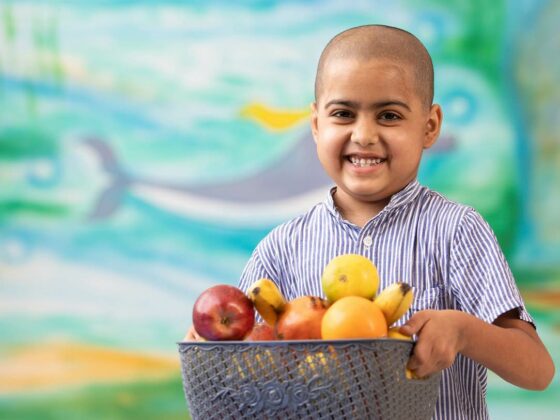Prostate cancer patients who consume the highest intakes of plant-based foods lower their risk of progression and recurrence. The study, abstract 392 presented at the 2023 American Society of Clinical Oncology (ASCO) Genitourinary Cancer Symposium, held in San Francisco, February 16–18, found that men with prostate cancer who reported the highest intakes of plant-based foods had a 52% lower risk of progression and 53% lower risk of recurrence in comparison to those with the lowest intakes.
“We’ve known that diets that include vegetables, fruits, legumes, and whole grains are associated with numerous health benefits, including a reduction in diabetes, cardiovascular disease, and overall mortality. We can now add benefits in reducing prostate cancer progression to that list,” says Vivian Liu, the lead author from Osher Center for Integrative Health, University of California, San Francisco.
While observational studies have reported that plant foods, such as tomatoes (containing lycopene) and cruciferous vegetables (eg cauliflower, broccoli), appear to reduce prostate cancer incidence and mortality, less is known about plant-based dietary patterns and prostate cancer survivorship. To the investigators’ knowledge, the current study is the first to evaluate plant-based dietary patterns among survivors of prostate cancer.
For the current study, 2,038 men diagnosed with T1–3a stage (with no spread of disease or limited spread), who were enrolled in the Cancer of the Prostate Strategic Urologic Research Endeavor (CaPSURE) study, completed a food frequency questionnaire at a median of 31.5 months post-diagnosis. Diet indices were then scored according to the healthful plant-based diet index (hPDI) with composite sums of positive or negative values assigned to plant-based or animal-based food groups in the diet.
To prevent bias, investigators adjusted for factors including days since diagnosis until the first questionnaire was given, age at diagnosis, year diagnosed, total energy intake, CaPSURE clinical site, race, walking pace, smoking status, Gleason risk score at diagnosis, prostate-specific antigen (PSA) level at diagnosis, and primary treatment.
Results showed 10% of participants (n=204) experienced progression over a median of 7.4 years of observation. Men in the highest quintile of the hPDI had a lower risk for progression in comparison to those in the lowest quintile (HR 0.48; P-trend <0.001) and a lower risk for recurrence (HR 0.47; P-trend <0.001) in comparison to those in the lowest quintile. In a subgroup analysis of men older than 65 years, the highest hPDI consumption was associated with an even lower risk of recurrence (HR 0.41; P-trend=0.03).
Limitations of the study included the fact that it did not adjust for pre-diagnostic diets (men in the cohort had already been diagnosed with prostate cancer), and that it did not take into account factors such as genetics and metabolism.
“One of the major concerns for patients, families, caregivers, and physicians is progression of prostate cancer to advanced stages. These findings are significant in informing clinical care, such as providing dietary recommendations to manage health and reduce morbidity caused by this common cancer affecting men. Moreover, adopting a plant-based diet may also reduce the risk of other chronic diseases (eg, diabetes, cardiovascular disease) and overall mortality, thereby promoting overall health and well-being,” Liu told Cancerworld.
Next, the team plan to conduct analyses looking at post-diagnostic plant-based diets in relation to prostate cancer-specific mortality. They also plan to examine the plant-based dietary indices in relation to prostate-cancer-specific quality of life at two, five, and 10 years from baseline.
“Prostate cancer treatment can lead to adverse side effects, including sexual and urinary problems and poorer physical and mental health. We hypothesise that plant-based diets could directly affect quality of life symptoms… in men with prostate cancer,” says Liu.
A similar picture for the benefit of plant-based diets, the team believe, is likely to hold in other cancers.












